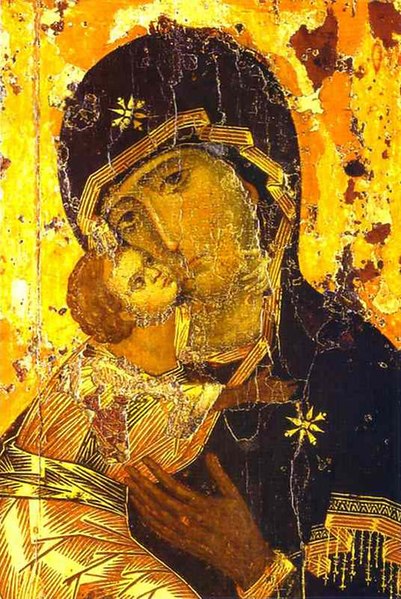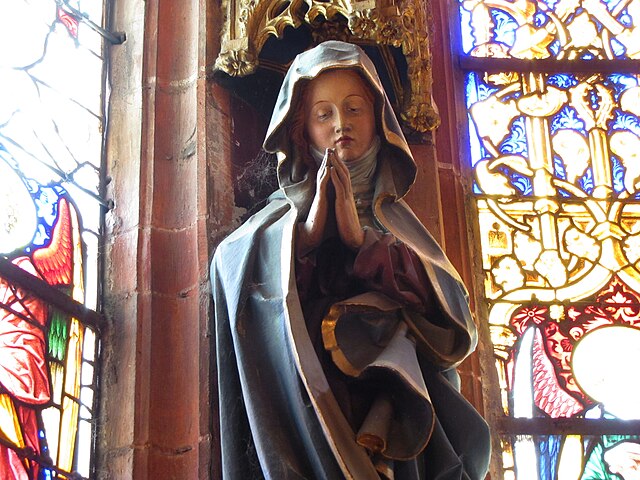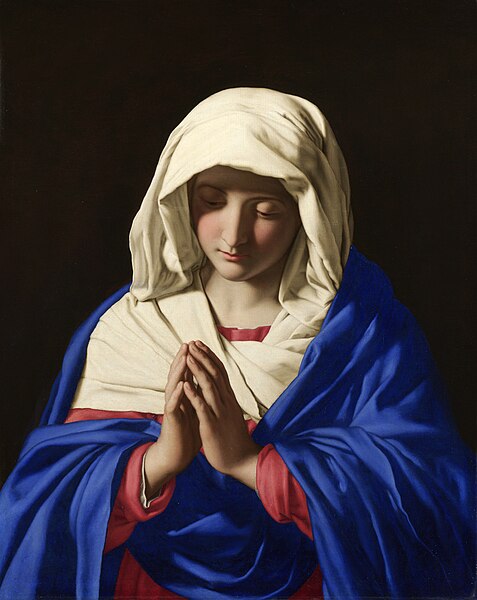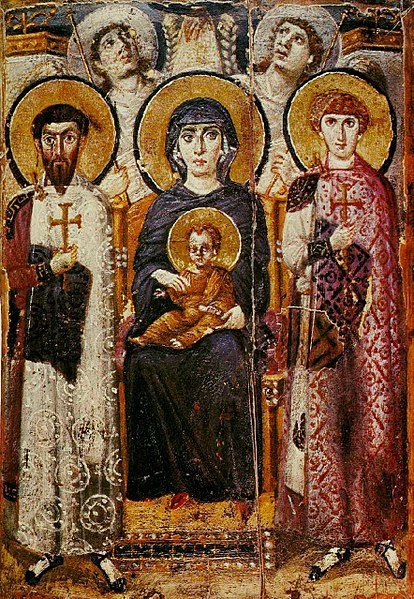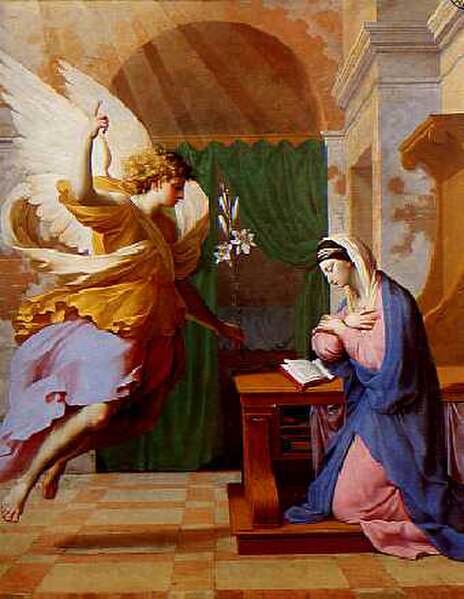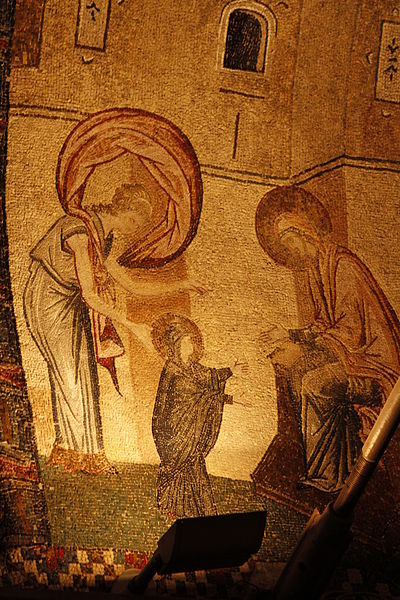Mariology is the theological study of Mary, the mother of Jesus. Mariology seeks to relate doctrine or dogma about Mary to other doctrines of the faith, such as those concerning Jesus and notions about redemption, intercession and grace. Christian Mariology aims to place the role of the historic Mary in the context of scripture, tradition and the teachings of the Church on Mary. In terms of social history, Mariology may be broadly defined as the study of devotion to and thinking about Mary throughout the history of Christianity.
The Eleusa style such as this Vladimir icon of the Madonna with the Child Jesus nestled against her face, has been depicted in both the Eastern and Western churches.
A statue of Mary in the Lutheran church of Saint-Pierre-le-Jeune, Strasbourg
Statue of Santa Maria Assunta, in Attard, Malta
Mary was a first-century Jewish woman of Nazareth, the wife of Joseph and the mother of Jesus. She is a central figure of Christianity, venerated under various titles such as virgin or queen, many of them mentioned in the Litany of Loreto. The Eastern and Oriental Orthodox, Church of the East, Catholic, Anglican, and Lutheran churches believe that Mary, as mother of Jesus, is the Mother of God. Other Protestant views on Mary vary, with some holding her to have lesser status.
The Virgin in Prayer, by Sassoferrato, c. 1650
Virgin and Child with angels and Sts. George and Theodore. Icon, c. 600, from Saint Catherine's Monastery
The Annunciation by Eustache Le Sueur, an example of 17th century Marian art. The Angel Gabriel announces to Mary her pregnancy with Jesus and offers her white lilies.
The Virgin's first seven steps, mosaic from Chora Church, c. 12th century

